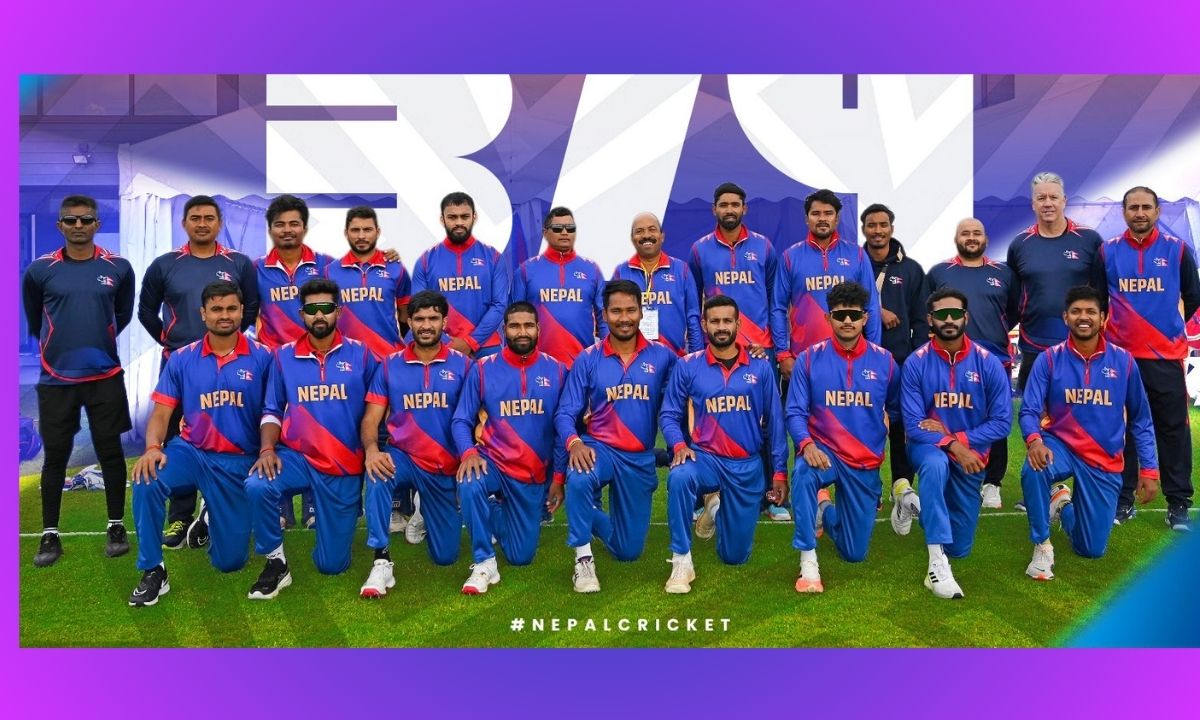Now Reading: Stuart Law’s Arrival Puts Nepali Cricket on Comeback Trail
- 01
Stuart Law’s Arrival Puts Nepali Cricket on Comeback Trail
Stuart Law’s Arrival Puts Nepali Cricket on Comeback Trail

he Nepal national cricket team has marked a significant turning point in its journey, showcasing a remarkable performance in the ICC Cricket World Cup League 2 series held in Scotland. Securing victories in three out of four matches against formidable associate nations like Scotland and the Netherlands on their home turf is no small feat, signaling a new era of confidence and skill for Nepali cricket.
A Series of Close Contests and Record-Breaking Attempts
Nepal’s impressive run wasn’t without its nail-biting moments. Their sole loss against Scotland was a hard-fought battle, narrowly missing a record-breaking victory by just two runs. This resilient display ensured that Nepal never succumbed to a one-sided defeat, consistently putting up a high-level performance throughout the series. The six crucial points gained have propelled Nepal from the bottom of the table, now standing at 12 points from 16 matches.
Stuart Law’s Immediate Impact
A significant factor behind this resurgence is the appointment of Australian coach Stuart Law just before the series. Known for his “never lose” mentality, Law had expressed his determination to win every match, and his philosophy clearly resonated with the team. Nepal’s performance reflected this ethos, with even their single loss being a commendable effort that earned widespread appreciation.
Key Players Stepping Up
The victory march was a collective effort, with several players delivering standout performances. Karan KC‘s magical finishing touches, Aarif Sheikh’s composed innings, Nandan Yadav’s brilliant debut, and Sandeep Lamichhane‘s impactful return to bowling all played pivotal roles.
The Fruits of Strategic Preparation
Prior to their Scotland tour, there was considerable curiosity about Nepal’s ability to perform in unfamiliar overseas conditions, as the team had historically struggled away from home. However, Nepal emphatically quelled these doubts with their stellar display. This success is largely attributed to a meticulously planned preparation phase, including a core camp in Nepal followed by a rigorous tour of England.
In England, the Nepali team remained undefeated in practice matches against various county clubs, including Cardiff’s New Port, MCC, and Glamorgan (one-day matches), and Gloucestershire (T20 match). Even in Scotland, a practice match against Scotland A saw a mixed result, with one loss and one no-result game.
According to Chumbi Lama, spokesperson for the Cricket Association of Nepal (CAN), the combination of home training and the UK tour proved immensely beneficial. “From the PM Cup to the core camp and then the preparation in London, all these factors coupled with the players’ tireless efforts have led to this excellent result,” Lama stated.
Improved Middle-Order Batting
A persistent concern for Nepali cricket, particularly the batting order, showed significant signs of improvement during the preparatory camps, a positive trend that continued into the League 2 matches. Despite challenging grassy pitches, Nepali batters showcased remarkable resilience. Crucially, the previously problematic middle-order batting appeared much more disciplined and refined.
Aarif Sheikh was exceptional in the middle order, laying the foundation for Nepal’s victories with crucial innings. Alongside him, Bhim Sharki, Dipendra Singh Airee, and Gulshan Jha contributed effectively, building partnerships. Even the lower middle order, with Sompal Kami and finisher Karan KC, provided strong support.
Former Nepali cricket coach Jagat Tamata lauded the batting performance in this series. “Conditions in Scotland are not usually in our favor, but the batting was good, and everyone formed partnerships. Overall, it was very good,” he remarked. Aarif Sheikh’s importance is further highlighted by his two Man of the Match awards in Nepal’s three victories during the series.
Crucial Victories Against Strong Opponents
Nepal’s outstanding performance against two of the strongest associate teams, Scotland and the Netherlands, was vital not only for improving their League 2 standing but also for securing crucial bonus points away from home. Defeating Scotland on their home ground and clinching both matches against a strong Netherlands side are significant achievements for Nepali cricket.
Aarif Sheikh emphasized the importance of every win. “Every win here is equally important for us, and beating the best associate teams is a big thing in itself,” he said. Coach Tamata also underscored the special nature of this performance, predicting it will boost morale for upcoming series. “The biggest thing is the result. The players also know how important League 2 is, and on top of that, we have beaten strong teams. Now we must continue this momentum in the days to come,” he added.
CAN spokesperson Lama echoed these sentiments, calling it a positive outcome for the entire Nepali team and CAN. “Winning three matches against strong League 2 teams like Scotland and the Netherlands in an away series is a very positive aspect for the Nepali team, for Nepal, and for CAN,” he affirmed.
Stuart Law’s Transformative Influence
Stuart Law’s appointment has clearly injected a new dimension of confidence into the struggling Nepali team. Known for his ability to uplift and achieve success with struggling teams, Law’s impact was immediately evident in the League 2 matches. Players have noted his distinct coaching style, which encourages youngsters to play with freedom. Aarif Sheikh commented after Nepal’s second match that the coach was “very cool” and everyone was enjoying themselves.
CAN spokesperson Lama believes that an experienced coach like Law will gradually refine the team’s performance. “It’s not like he will bring change overnight, but with better atmosphere and planning for many players, we have seen good positive results in a short period,” he explained. He also highlighted the crucial presence of assistant coach Gyanendra Malla, a former national team captain who brings a deep understanding of the players.
Areas for Continued Improvement
Despite the impressive strides, there are still areas where the Nepali team needs to focus on improvement. The opening and top-order batting remains a concern, with Nepal losing early wickets in almost all matches of the series. In three games, Nepal lost two to three wickets within the powerplay. While the middle order has stabilized the innings, attention to the opening and top order is crucial.
Additionally, death bowling appears to be a weakness. Against Scotland, Nepal conceded a staggering 122 runs in the final 10 overs. The team also needs to better utilize its all-rounders; Gulshan Jha’s role, for instance, wasn’t clearly defined, and he bowled sparingly, possibly due to a knee issue. Addressing these areas, particularly the tendency to concede many runs in death overs, will further enhance Nepali cricket’s promising journey.
















